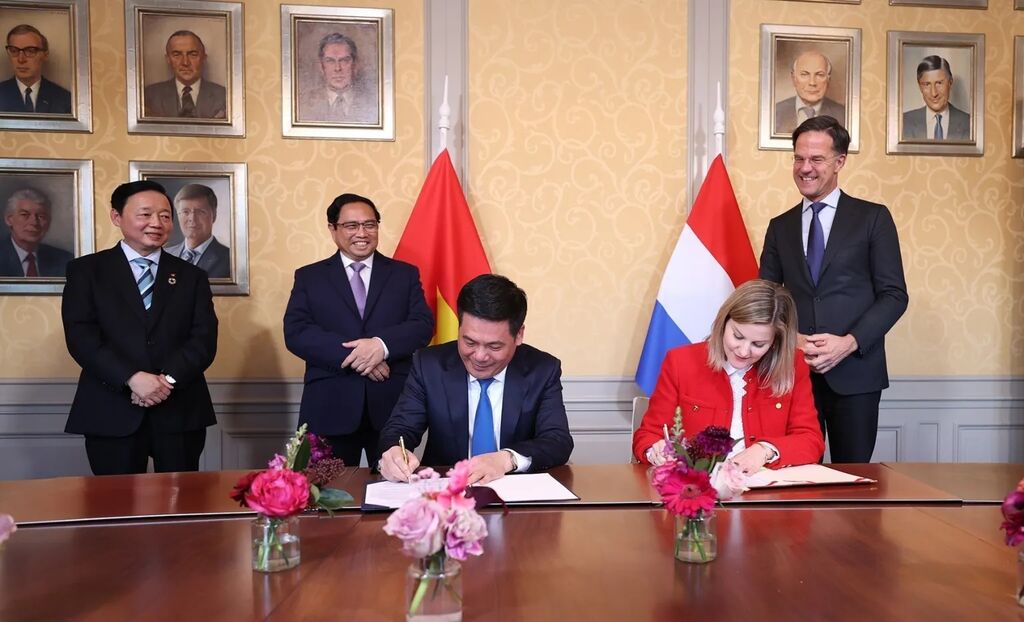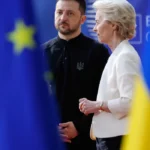Based on trusting friendship, shared political determination, potential and need for cooperation, mutual interests and mutual economic interests, the good relations between Vietnam and the Netherlands will certainly continue to bear fruit, further deepening the integral partnership.
Political And Diplomatic Relations
The Vietnam-Netherlands relationship is considered an example of “dynamic and effective relations” between Vietnam and a European country. Although diplomatic relations were officially established in 1973, long before that, around the beginning of the 17th century, there were Dutch merchants who came to Vietnam to buy spices, rice, silk and ceramics. During Vietnam’s resistance struggle against the American imperialists, many Dutch people took to the streets to protest the war and established the Netherlands-Vietnam Health Committee to provide humanitarian aid to Vietnam.
Since the 1990s, the relationship between the two countries has grown stronger. The Netherlands regards Vietnam as a priority partner and the policy of promoting cooperation with Vietnam has received high support and consensus from the political world as well as the Dutch business community.
The two countries established a “Strategic Partnership on Climate Change Adaptation and Water Management” relationship in October 2010; a ”Strategic Partnership on Sustainable Agriculture and Food Security” (June 2014) upgraded to ”Integral Partnership” during the visit of Dutch Prime Minister Mark Rutte to Vietnam in April 2019. Since then, the two sides have cooperated intensively in many fields, from politics and diplomacy to economy, trade and investment.
Most recently, during the official visit to the Kingdom of the Netherlands by Prime Minister Pham Minh Chinh in December 2022, the leaders of the two countries agreed to intensify and deepen cooperation between the two countries within the framework of the strategy Partnership on Adaptation to Climate Change and the Strategic Partnership on Sustainable Agriculture, to expand it in the fields of security, defence, culture and tourism, transport, science and technology, education and training, and to continue to support each other in multilateral forums such as the ASEAN – EU Cooperation Framework, the Asia – Europe (ASEM) Summit, the UN….
Economic Cooperation
The two leaders agreed to continue to effectively implement the EU-Vietnam Free Trade Agreement (EVFTA) and jointly promote it so that the two countries become hubs for goods transit in the two regions.
The Netherlands is Vietnam’s largest trading partner and biggest investor in Europe. Bilateral trade in 2021 will reach 8.37 billion USD, up almost 10% compared to 2020, then 11.1 billion USD in 2022, up 32.6% year on year. The Netherlands was Vietnam’s second largest export market in 2022.
The implementation of the European Union-Vietnam Free Trade Agreement (EVFTA) in August 2020 has provided many exciting opportunities for Vietnamese and Dutch companies to expand their cooperation. Many agricultural products from Vietnam have successfully entered the EU market with preferential tax rates.
In terms of investment, as of March 2023, the Netherlands ranks 8th out of 143 countries and territories and 1st within the European Union (EU) in Vietnam with 421 projects in Vietnam, bringing together a fund of $13.89 billion.
When it comes to development cooperation, for decades the Netherlands has been one of the largest official EU development donors to Vietnam. In June 1999, the Netherlands placed Vietnam on the list of priority countries for receiving development aid. In October 2000, the two countries signed a framework agreement on development cooperation. In addition, the Netherlands also provides aid in the form of NGOs through the Netherlands-Vietnam Health Commission. This is an organization that has provided extensive support to Vietnam in health, public health and rural poor livelihood development since 1968.
Since January 2014, the Netherlands has changed its relationship with Vietnam to “Business Partnership” focusing on promoting trade and investment to contribute to economic growth. However, the Netherlands continues to sponsor many socio-economic organizations in Vietnam.
Environmental Protection
Along with promoting trade and investment cooperation, Vietnam and the Netherlands have been actively expanding it in many other areas. In particular, the two sides have established a strategic partnership on climate change adaptation and water management since 2010.
The most notable activity of the first years of cooperation between the two countries was the completion of the Mekong Delta plan with a long-term vision, with many recommendations focusing on solving water resources management problems. , adaptation to climate change in order to transform the delta into a zone of sustainable economic development.
Currently, the Netherlands continues to share experiences, human resources and technologies to help Vietnam solve its pressing problems, such as drought, salt water intrusion, subsidence and riverbank erosion. , sides…
The two countries also cooperate strongly in the field of agriculture. Within the framework of the Strategic Partnership on Climate Change and Sustainable Agriculture, the two parties have implemented numerous cooperation programs and projects with medium and long-term orientations. The Netherlands is currently a major investor in Vietnam’s agricultural sector and is gradually helping Vietnam to build sustainable agricultural production, increasing the value of exports in the fields of fruits and vegetables, market gardening, livestock and agriculture. aquaculture.
In education and training, the Netherlands has helped Vietnam through many projects. Since August 2002, the Netherlands has included Vietnam in the list of special regulations for cooperation in higher education. Many Vietnamese universities and research institutes have established close cooperation with Dutch partners.
Regarding health, in the past two years, the Netherlands has supported Vietnam with one million doses of vaccines and medical materials worth 43 billion VND to prevent and control COVID-19.
This article is originally published on lecourrier.vn







